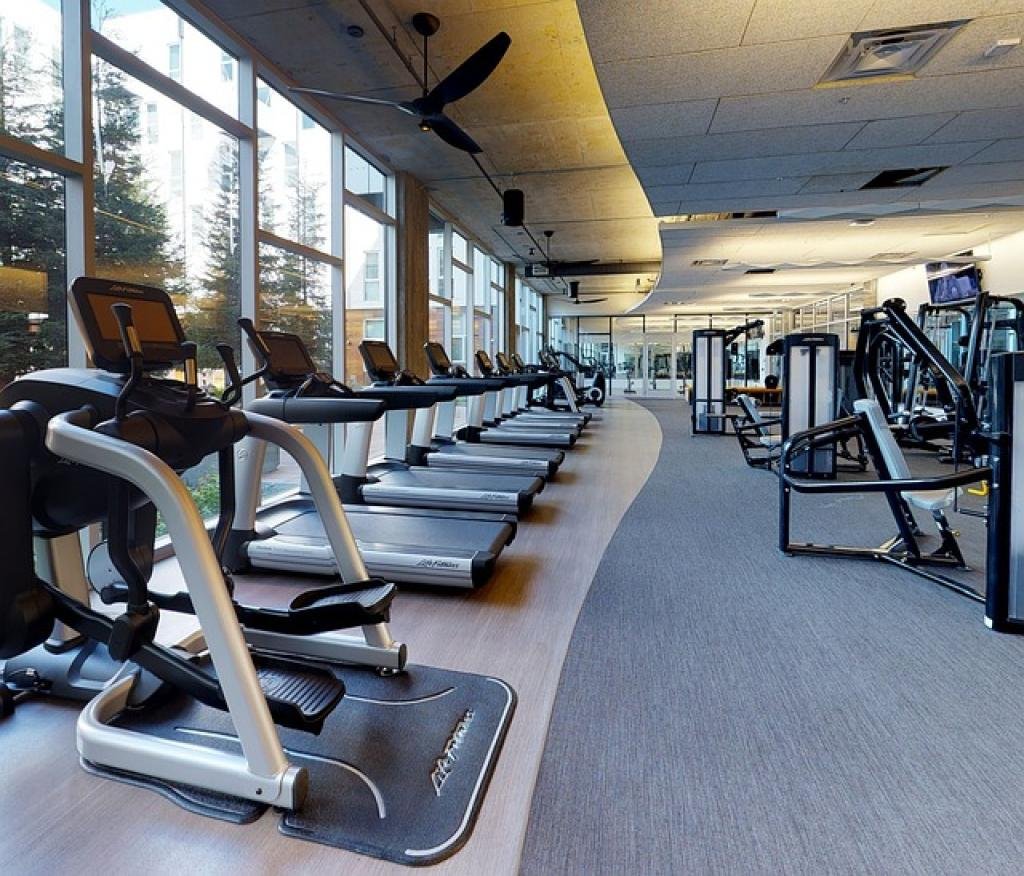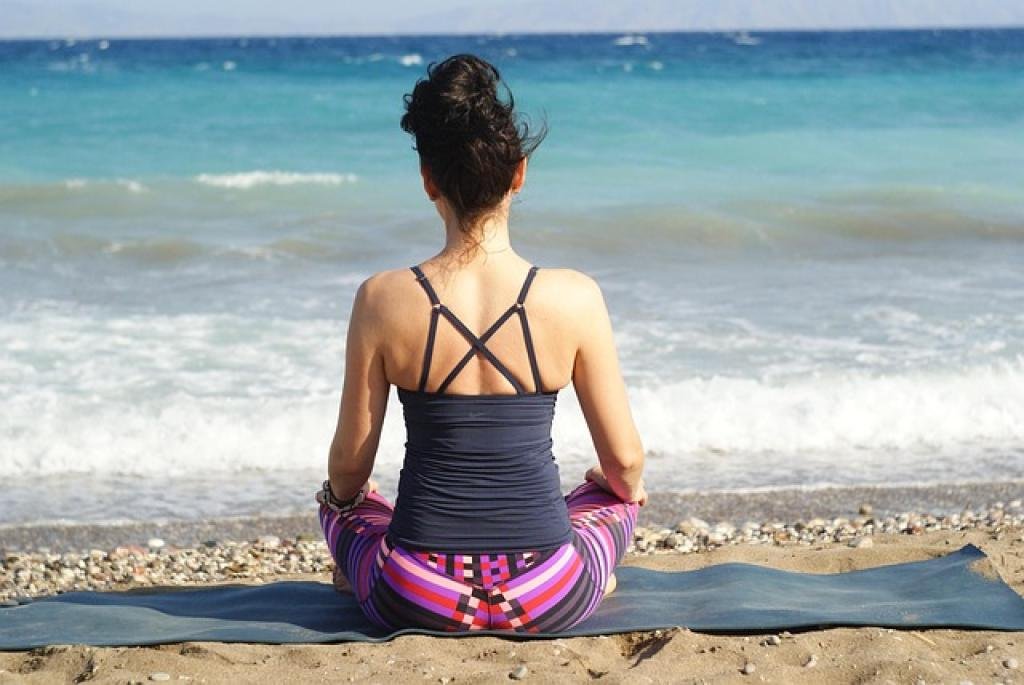We independently test and review fitness products using a research-based approach. If you buy through our links, we may earn a small commission at no extra cost to you. Read our Disclosure
Hitting your 40s often means juggling more responsibilities, but it can also mean facing new challenges, particularly when it comes to sleep and recovery. As we age, our bodies change, and so do our needs for rest and rejuvenation.
By now, you’ve likely realized that a good night’s sleep isn’t always a guarantee. Hormonal shifts and changes in our sleep cycle can make it harder to fall and stay asleep, leaving us groggy and less than energized the next day.
But don’t despair! With a few mindful adjustments, you can significantly improve the quality of your sleep and recovery. Whether you’re looking to boost your morning energy or enhance your overall health, the following tips are tailored specifically for those embracing life over 40.
Let’s dive into the practical strategies that can help transform your nights into restful adventures and your days into vibrant journeys.
Tips for Establishing a Consistent Sleep Schedule
One of the secrets to achieving restful sleep is consistency. Our bodies thrive on routine, and establishing a regular sleep schedule can make a big difference in how rested we feel each day.
Start by setting a fixed bedtime and wake-up time, even on weekends. This helps regulate your body’s internal clock, making it easier to fall asleep and wake up naturally. You might be tempted to stray from the schedule during weekends or holidays, but sticking to it will pay off in the long run.
Create a Relaxing Bedtime Routine
Winding down before bed is crucial. Consider a soothing activity like reading, gentle stretching, or a warm bath to signal to your body that it’s time to relax. Avoid screens and bright lights, as they can interfere with your body’s melatonin production.
If you find it hard to stick to your sleep schedule, try setting a nightly alarm to remind you it’s time to start your wind-down routine. This can help train your mind to prepare for rest.
Remember, consistency in your sleep schedule sets the foundation for better sleep quality, healthy recovery, and more energetic days ahead.
Understanding the Impact of Aging on Sleep Patterns
As we journey into our 40s, understanding how aging impacts our sleep can empower us to make better lifestyle choices. It’s natural for sleep to evolve over the years, often bringing lighter sleep and more awakenings throughout the night.
This change is partly due to shifts in our body’s production of melatonin, the hormone that regulates our sleep-wake cycle. As melatonin levels decrease with age, it can take longer to fall asleep, leading to less time in the restorative deeper sleep stages.
In addition, it’s common to develop different sleep disorders or alterations in sleep structure, like waking up earlier than desired. These changes can leave us feeling less rested, even if we’ve spent ample time in bed.
Acknowledging these factors is the first step toward addressing them effectively. By learning more about how our sleep patterns shift with age, we can target specific issues with tailored strategies to maintain our vitality and well-being as the years go by.
Creating an Ideal Sleep Environment in Your 40s
Crafting the perfect sleep sanctuary becomes increasingly important as we age. A restful bedroom can be your refuge, helping your body transition smoothly into sleep and wake refreshed.
Begin with your bed. A supportive mattress and comfortable pillows are essential for a good night’s sleep. If your bedding is over eight years old or causes discomfort, consider investing in replacements to better support your changing body.
Control the room temperature to stay cool, as a cooler environment can enhance sleep quality. Aim for a setting between 60 to 67 degrees Fahrenheit, which is generally optimal for most people.
Minimize Noise and Light
Blocking out noise and light can significantly impact your rest. Earplugs or white noise machines are excellent for drowning out disturbances, while blackout curtains help keep out unwanted light, even as the sun rises.
Consider your bedroom’s ambiance. Calming colors and scents like lavender can further promote relaxation. A screen-free zone is also advisable, reducing blue light exposure that disrupts melatonin production.
As you refine your sleep environment, remember that a tranquil and inviting space can make all the difference in nurturing restful, rejuvenative sleep as you tackle life in your 40s.
The Role of Nutrition in Enhancing Sleep Quality
What you eat can profoundly influence your sleep quality, especially as you navigate life in your 40s. Nutrition plays a crucial part in regulating sleep-related hormones and creating the right internal environment for rest.
A balanced diet rich in fruits, vegetables, whole grains, and lean proteins provides the nutrients needed for overall health, including quality sleep. Certain foods like cherries, bananas, and almonds are known to contain components that help boost melatonin production, preparing your body for a restful night.
Be mindful of your consumption of caffeine and alcohol, particularly in the hours leading up to bedtime. Both substances can disrupt your sleep cycle, making it harder to fall and stay asleep. Opt for herbal teas or warm milk, which can be soothing alternatives for evening relaxation.
Sugary and heavy meals can lead to indigestion or nighttime discomfort, so it’s wise to finish eating two to three hours before bed.
By cultivating dietary habits that support sleep, you’ll harness the power of nutrition to not only enhance sleep quality but also support overall well-being as you continue to embrace your 40s.
Implementing Relaxation Techniques for Better Sleep
Finding ways to unwind is key to achieving restful sleep, especially as you move through your 40s. Relaxation techniques can ease the transition from the day’s busyness to a night of rejuvenating rest.
Start with deep breathing exercises or meditation, which are fantastic for calming the mind and reducing stress. Just a few minutes of mindfulness can lower heart rate and promote relaxation, signifying to your body that it’s time to rest.
Progressive muscle relaxation is another effective method. By systematically tensing and then releasing each muscle group, you can alleviate physical tension that often accompanies daily stressors.
Incorporate Gentle Movement
Incorporating gentle activities like yoga or tai chi before bed can also benefit sleep quality. These practices help release pent-up tension and foster a sense of tranquility, making it easier to drift into a peaceful slumber.
Consider auditory aids such as guided meditation apps or calming music. These can be excellent tools in creating a soothing bedtime atmosphere, helping to drown out intrusive thoughts and promote easing into sleep.
By embracing these relaxation techniques, you’ll not only enhance your sleep but also nurture a broader sense of well-being that complements your lifestyle in your 40s.

Exercising Smart: Workouts to Promote Restful Sleep
Regular physical activity plays a vital role in promoting restful sleep, especially as you cultivate a healthy lifestyle in your 40s. The key is to exercise smart by selecting activities that not only benefit your body but also enhance your sleep quality.
Engaging in moderate aerobic activities like walking, cycling, or swimming can help regulate sleep patterns. These exercises boost endorphin levels, reducing stress and anxiety that might otherwise keep you up at night.
Strength training is another useful component. Building muscle can improve metabolism and energy use during the day, resulting in more efficient sleep cycles. Aim to include weightlifting or bodyweight exercises a few times a week.
While exercise is beneficial, timing matters. Intense workouts late in the evening might energize you, making sleep elusive. Instead, schedule vigorous activities earlier in the day and reserve the evening for lighter exercises or relaxation.
As you incorporate smart exercise choices into your routine, you’ll not only experience the benefits of physical fitness but also enjoy more restorative sleep, allowing you to tackle each day with renewed vigor and vitality.
Exploring Supplements and Natural Remedies for Sleep Support
In your quest for restful sleep during your 40s, exploring supplements and natural remedies can be valuable options. While these solutions may not replace solid sleep habits, they can provide additional support.
Melatonin supplements, available in various forms, are a popular choice for enhancing sleep quality, especially if you struggle with jet lag or irregular sleep patterns. It’s best to take them an hour before bed to mimic the body’s natural melatonin production.
Herbal Solutions
Herbal remedies such as valerian root, chamomile, and passionflower are known for their calming effects. Whether in tea or supplement form, these herbs can help ease stress and facilitate relaxation. Always consult with a healthcare provider before starting any new supplement regime to ensure they align with your health needs.
Magnesium is another important mineral that can aid sleep. It supports muscle relaxation and neurotransmitter function, contributing to better rest. Including magnesium-rich foods in your diet or using supplements might help you catch those elusive Zs.
By incorporating these natural aids mindfully, you’ll build a repertoire of sleep-supportive strategies tailored to your needs, promoting more consistent and rejuvenating sleep as you navigate through your 40s.
Conclusion
Navigating sleep and recovery in your 40s can seem challenging, but it’s important to know that with a few strategic changes, restful nights can become a reality. We’ve explored a variety of approaches to help you create an environment and lifestyle that supports quality sleep and rejuvenation.
From establishing a consistent sleep schedule to creating the perfect sleep environment, these steps lay a solid foundation for improved rest. Recognizing how aging impacts your sleep can empower you to address changes proactively, ensuring you wake up feeling refreshed and ready to take on the day.
Nutrition also plays a significant role, with specific foods and mindful eating habits contributing to better sleep. Pairing this with smart exercise routines adds another layer of support, helping your body prepare for restful slumber.
It’s also worth noting, relaxation techniques like meditation or guided breathing can ease the transition to sleep, reducing stress and setting the stage for more restorative rest. For those interested in additional support, natural remedies and supplements can be a practical enhancement, working alongside these habits to promote deeper, more consistent sleep.
Altogether, these strategies form a comprehensive approach to sleep and recovery that aligns with the needs of life in your 40s. By integrating them into your routine, you can enhance both your nighttime rest and your daily vitality, paving the way for healthier and more energized years ahead.



